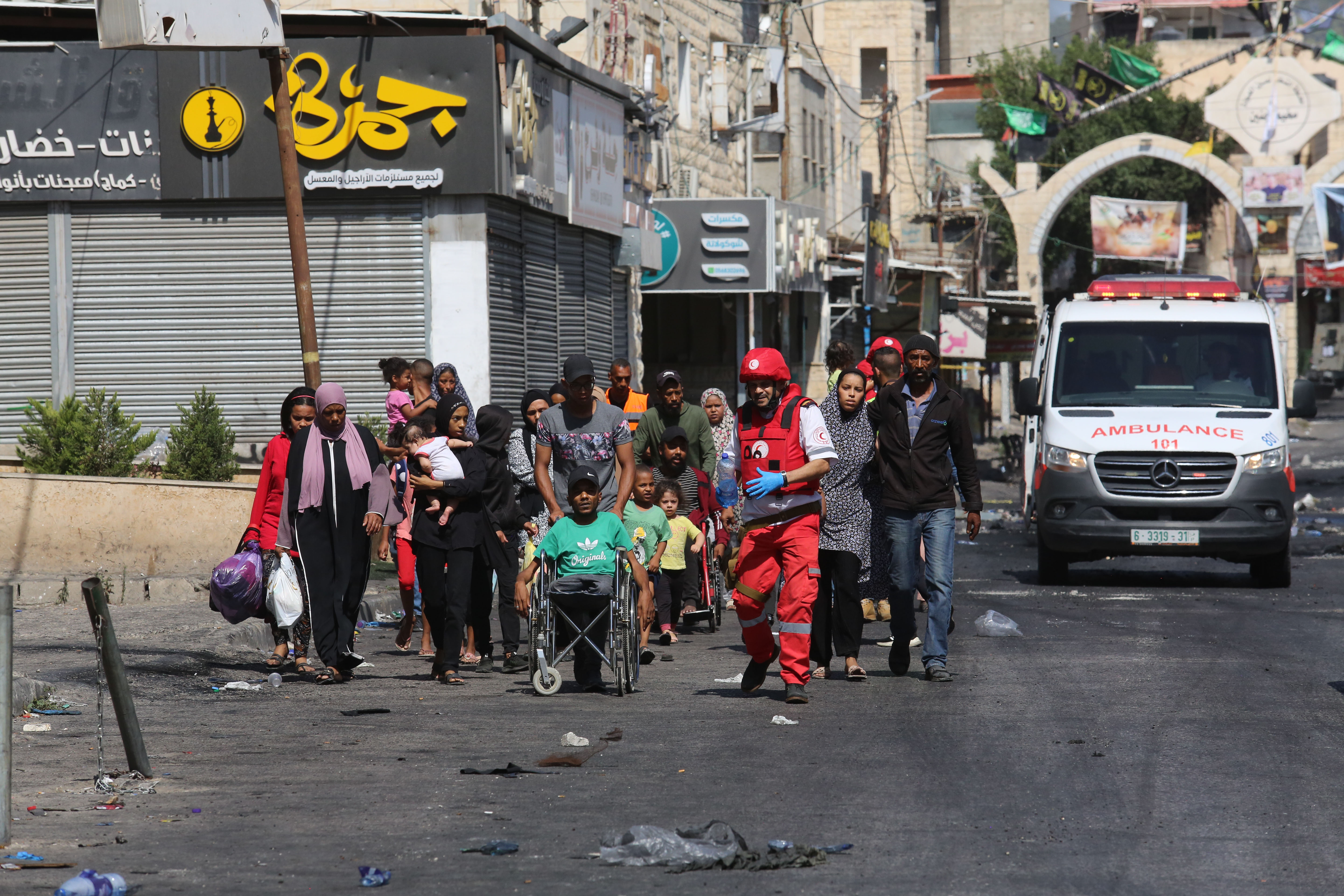
Sabrin is 32 years old and a paramedic from Silat al-Harithiya village, near Jenin in the West Bank. She has worked with the Palestine Red Crescent Society for the past five years.
On Monday 3rd July, Sabrin woke up to news of the military operation on Jenin refugee camp. She tried to reach the PRCS ambulance centre in Jenin for duty but faced difficulties. She stated, “The taxi driver told me it would be difficult to reach Jenin, but I told him I had to reach the ambulance centre to go and help. We agreed to go to the entrance of Jenin, after which I had to find my own way to the ambulance centre.”
Sabrin contacted a private ambulance, who helped her reach. All PRCS ambulances were busy responding to the injuries.
Sabrin accompanied an ambulance team to assist a woman who had gone into delivery inside the camp. The team coordinated for access with the International Committee of the Red Cross (ICRC). However, as the team approached the refugee camp, they encountered difficulties. Sabrin explains, “We came to an intersection, where a military jeep in front of us started ordering us to go backwards. But we could see there were already some military jeeps and a bulldozer behind us.” The driver attempted to negotiate, but discussion began to escalate. “I was worried that the soldiers would shoot towards us. I felt that we could be shot at at any moment. I was scared but I also felt responsibility for the woman who was in delivery. I was worried about her and her baby. The occupation forces insisted that we had to go back, but there was nowhere to reverse as two jeeps were blocking our way from behind. The military jeeps moved and as we began to reverse the military jeep in front of us rammed into our front, pushing us backwards. It was intense, we were all so stressed.”
Another ambulance was sent from the ambulance dispatch centre to respond to the woman in delivery, with coordination through the ICRC. However, this second ambulance was also unable to reach the woman.
On the same day, the same ambulance team was prevented access when trying to evacuate families with children from their homes. Sabrin said, “We wanted to evacuate people suffering with tear gas inhalation. On one occasion I had to get out of the ambulance vehicle to request a military officer to allow us to reach the homes. I told him there were children inside, but he only shouted at me to go back. I tried to talk to another military officer, but he also didn’t allow us.”
The next day, Tuesday, 4th July, Sabrin was unable to reach the PRCS ambulance centre and report on duty due to severe movement restrictions in the area.
“This isn’t the first time we faced difficulties,” she said. “We’ve been shot at and targeted with live ammunition. I get scared every time. I have two daughters and I worry that I would not return to them. But I still feel a strong obligation towards the people. The attacks scare me, but they won’t stop me from continuing my work. In fact, they encourage me to continue because I understand that people depend on us.”


